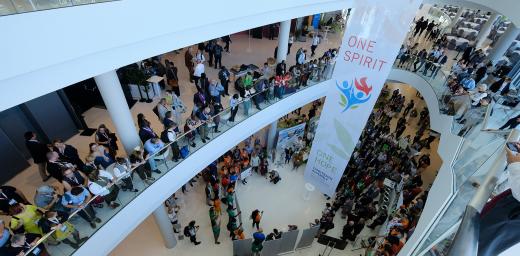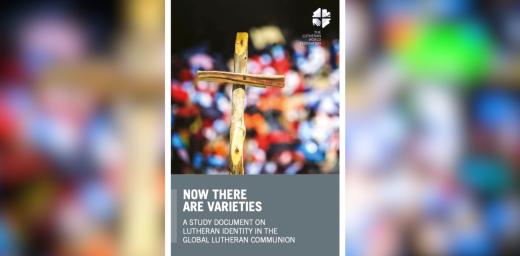Churches, institutions can access modules on diakonia, leadership and more
(LWI) – The Lutheran World Federation (LWF) is offering a wide variety of free online resources including training material on its new Learning Platform. The online space provides modules, practical guidelines from webinars and other meetings, and publications for use by the member churches, theological institutions, and other interested groups.
"Deeper and life-long learning is essential for leaders, pastors, educators, women and youth as well as lay leaders to serve effectively in different kinds of ministries. I am delighted that a rich and wide variety of LWF resources are now easily accessible for wider usage," said Rev. Dr Sivin Kit, Director of the Department for Theology, Mission and Justice.
Deeper and life-long learning is essential for leaders, pastors, educators, women and youth as well as lay leaders to serve effectively in different kinds of ministries.
Rev. Dr Sivin Kit, Director, Department for Theology, Mission and Justice
LWF Learning is organized according to LWF’s thematic focus areas including theology, diakonia, and leadership, with more themes to be added. Under Theology for example, undergraduate students, pastors and other church workers can access a nine-module course on the different aspects of Lutheran theology.
Under the diakonia section, resources such as Diakonia in Context explain LWF’s theological rooting and serving the neighbor as part of the church’s holistic mission. Engagement with LWF’s humanitarian arm World Service and other diaconal actors is explained in a Guidance Note with practical steps for such cooperation.
Collaboration and co-branding with other organizations is a long-term goal of the new platform which also offers training modules on theology in the public space, ecumenical and interfaith contexts, which were developed in cooperation with the Berlin Institute for Public Theology (Germany) and the Beyers Naudé Centre for Public Theology (South Africa).
For more information please contact [email protected]






